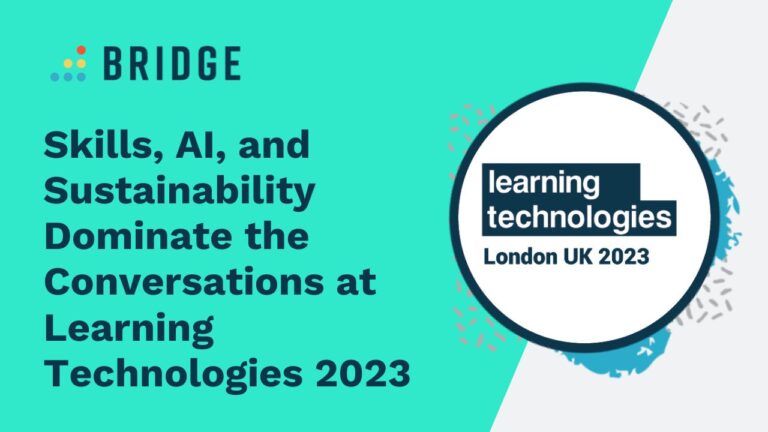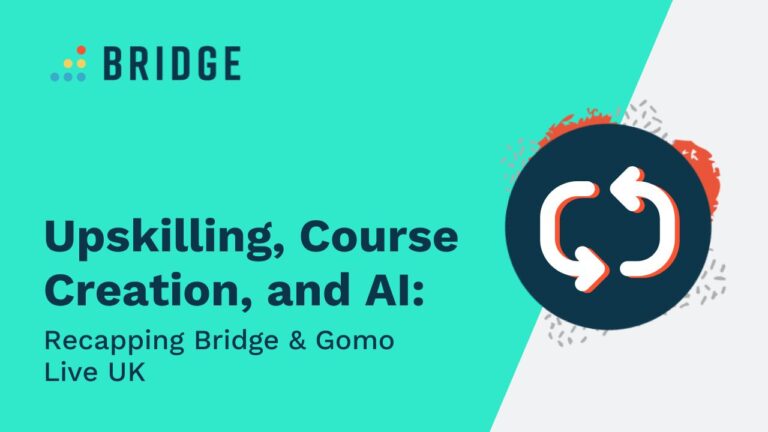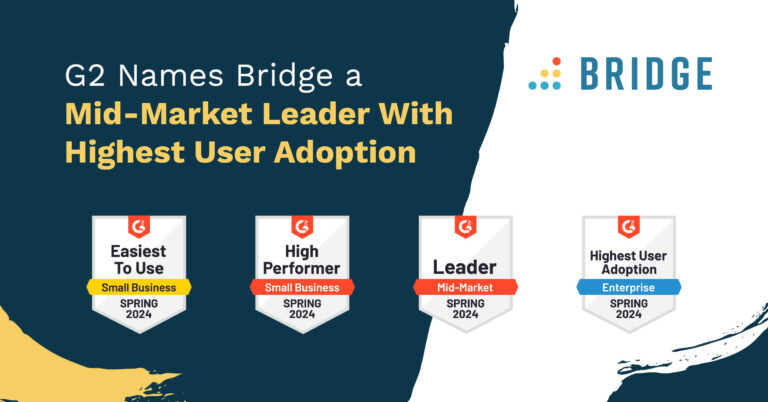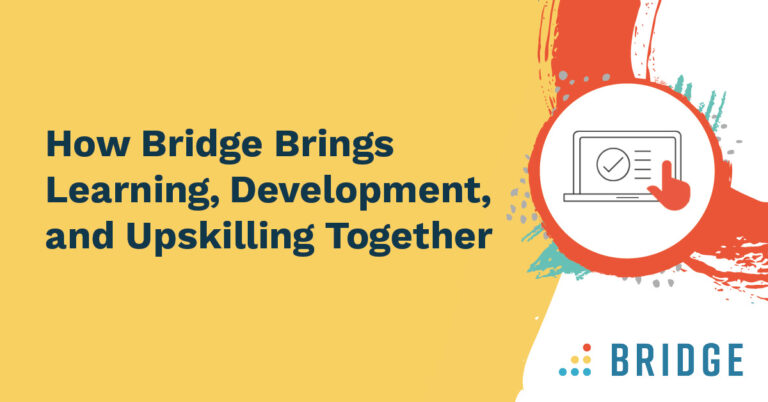Now in its 23rd year, Learning Technologies Conference and Expo is Europe’s largest gathering of L&D and HR professionals. According to its chairman, Donald Taylor, this year marks the expo’s biggest-ever event, with delegates flying into London’s ExCeL center from all over the world, including the US, Europe, Brazil, and Australia. Attendees arrived with the same goals in mind: to find solutions to their urgent people problems, network with like-minded professionals, and keep their fingers on the pulse of the biggest topics confronting HR and L&D teams today.
Team Bridge attended the conference and also had a presence on the expo floor, along with our colleagues from Watershed, Rustici Software, PeopleFluent, and GP Strategies. Here’s a wrap-up of some of the biggest topics on the minds of the people in the business of people.
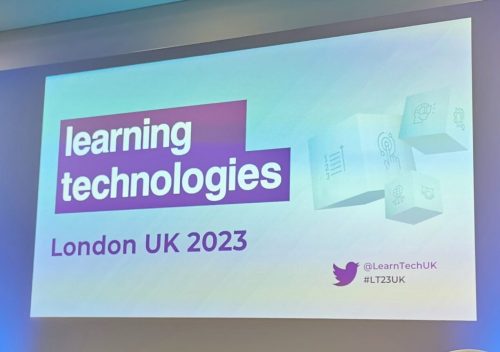
AI and the Jobs of the Future
Unsurprisingly, AI was the big buzzword of the event. Everyone from vendors on the expo floor to thought leaders across the conference had something to say about how artificial intelligence has disrupted (and will continue to disrupt) the way we learn.
But AI wasn’t the only thing people were talking about. There were, of course, the usual problems plaguing L&D and HR folk (like how to show ROI on learning programs and how to meet growing demands with smaller teams and budgets) alongside more recent topics that centered around skills and sustainability. The tone for the conference was set by opening keynote speaker Njeri Mwagiru, Senior Futurist at Stellenbosch University Business School in Cape Town, whose talk “Living and Learning in a World of Technological Disruption” touched on several of these themes.
Njeri pointed out that while disruption might sound alarming, we need to face it with a responsive, adaptive, and flexible approach. So, what does this mean in practice? For Njeri, it starts with keeping track of trends, being cognizant of technological shifts, and then responding as appropriate. This kind of mindset helps to highlight the skills needed for the future, because, as L&D professionals, we need to engage and develop people to be successful in a world of disruption.
Njeri’s prediction is that the world will need more of these kinds of roles in the future:
- Data analysts and scientists
- AI and Machine Learning (ML) specialists
- Digital marketing and strategy specialists
- Process automation specialists
- Business development professionals
- Internet of Things (IoT) specialists
- Big data specialists
- Digital transformation specialists
- Software and application developers
- Information security analysts
Equipping people to do these jobs requires hard skills. To comprehensively face the disruptions Njeri described, however, soft skills like creativity, exploration, curiosity, vulnerability, and collaboration are also important.
She finished by asking how should we engage with this world of disruption and suggested three go-forward actions:
- Combine insights with action
- Build communities of practice
- Leverage shared networks

Meanwhile, Robin Teigland, Professor at Chalmers University of Technology in Gothenburg, Sweden, offered a slightly different take on future jobs in her talk “Let’s Create a Digital and Green Future Together”. She said that while we don’t know how AI will change the world, these are possible future job titles we’ll need to be aware of:
- Gig manager
- Robot personality designer
- Cultural weaver
- Climate auditor
- Vertical farmer
- Ethics developer
- Cloud security guard
- DNA coach
- Oldfluencer
- AI prompter
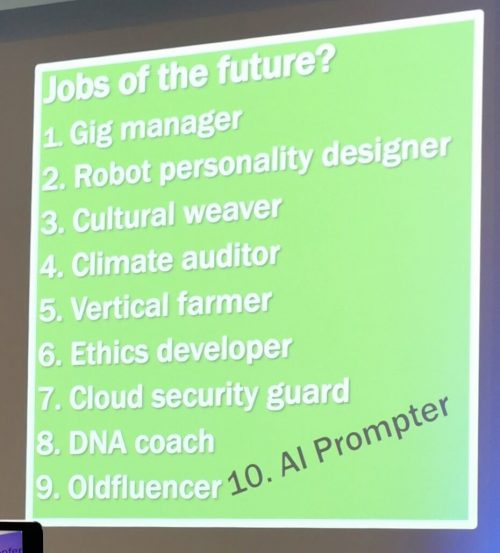
EXPLORE ACTIONABLE WAYS TO DEVELOP SKILLS | ‘How to Train Employees on Soft Skills’
Rethinking the Link Between Learning and Performance
Rather than addressing external disruptions impacting the industry, some talks instead proposed proactive changes that L&D professionals need to make in order to improve learning practices. An interesting case was made to this effect by Charles Jennings, Director of Duntroon Consultants, in his talk “Rethinking Learning to Support Organisational Performance”. Charles spoke about the need for L&D to become a “value creator” rather than an “order taker” by ensuring training programs link to performance. Learning, he says, is just a process while performance is the outcome, which means learning programs need to be designed within broader organizational wants and needs, and not in isolation.
Charles argued that learning program design should be done via co-creation so that everyone owns the problem as well as the solution—not just L&D. He also suggested that these solutions be given space to be applied. To properly embed knowledge, especially in a 70-20-10 world where 70% of learning takes place on the job and 10% in formal settings, solutions need to be integrated into employees’ workflows.
LEARN HOW SKILLS DEVELOPMENT BENEFITS YOUR ORGANIZATION | ‘What Is Talent Mobility? Plus, What It’s Not!’
How to Upskill and Reskill to Stay Ahead
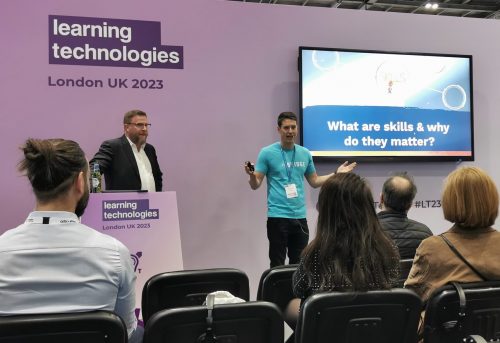
Whether you’re looking to improve your current work or prepare for future roles like the ones mentioned above, it all boils down to skills. Do we have the skills we need to do the jobs that are coming down the pipe? And if not, how do we cultivate them internally? As Bridge’s Mark Probert, Vice President of Revenue, and Peter Brussard, President, said in their expo talk “Build a Critical Skills Strategy for a Critical Time”, everyone’s thinking about skills at the moment.
But what are skills? In the workplace, skills are the intersection of what your job needs you to do and what you’re good at. If you’re an expert chef but you work as a criminal defense lawyer, for example, there’s a skills gap at play.
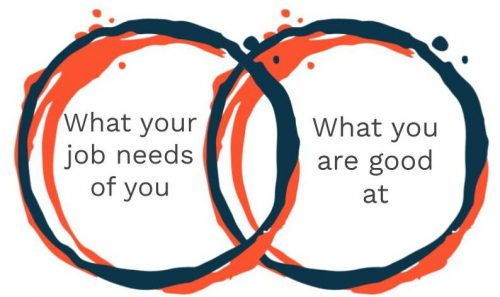
Skills development is important both for the employee (after all, improved skills mean more responsibilities and the possibility of promotion) as well as the organization. This is more acute in today’s tight labor market, especially in the US, where the number of skilled professionals is dwindling.
Technology, Peter and Mark said, has lent urgency to the skills conversation, but did you know that:
- According to Gartner, 80% of organizational skills will have to be reprioritized or revisited because of digital business transformation by 2024
- According to McKinsey, 82% of executives see reskilling as critical to business success
Now, couple these insights with the fact that 41% of respondents in one McKinsey study cited a lack of career development and advancement as the main reason for quitting their jobs in 2022. When it comes to quitting, a lack of skill development trumps salary concerns, having a bad boss, or a lack of meaningful work. Together, organizations’ need for skills development and the workforce’s clear appetite for career advancement set the stage for a renewed emphasis on filling skills gaps.
MORE FROM THE BLOG | ‘4 Ways to Fuel Employee Engagement With Skills Development’
Developing a Skills Strategy
As the number of skilled professionals decline, it’s clear that we can’t just hire our way out of the skills problem. As such, the solution is to develop a skills strategy—and a good strategy involves three components:
Skills acquisition: hiring new people to do the work
Upskilling: teaching new skills to existing employees who remain in their roles
Reskilling: teaching new skills to existing employees who move to new roles
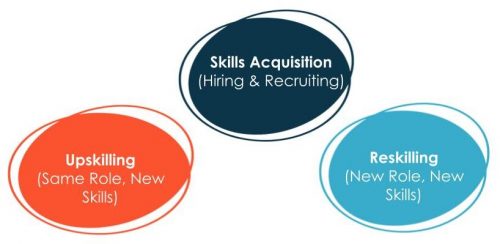
Technology, AI, and people play a key part in helping address the skills wants and needs found within companies, managers, and employees. However, knowing what skills you need can be a heavy lift for many HR or training teams. Not only are business objectives evolving, but the roles and requirements you have to achieve these objectives are also constantly changing. Knowing which skills are needed to complete certain tasks can be a constant task in itself if you don’t have help.
The good news is you don’t have to take on the challenge alone—in fact, it doesn’t need to be a challenge at all! Enter Bridge Skills Plus, which uses AI to automatically map skills and make recommendations for learning. Couple it with an LMS to track training and a performance management system to set and track goals, and you’re already on your way to solving your skills problem.
Stay Ahead of the Skills Crisis
Bridge is an employee development platform that transforms organizations by bringing together learning, skills, and performance in one unified experience. It can help identify skills and talent needed to move your business forward, pair mentors with mentees, and enhance peer-to-peer connection.
To find out more, request a demo. We’d love to show you what Bridge can do!
